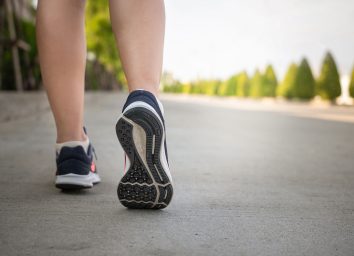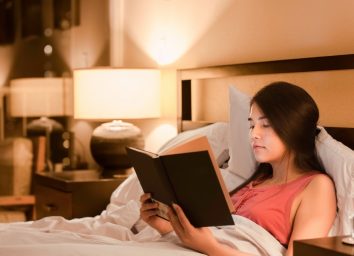One Secret Side Effect of Changing Your Bedtime, Says New Study
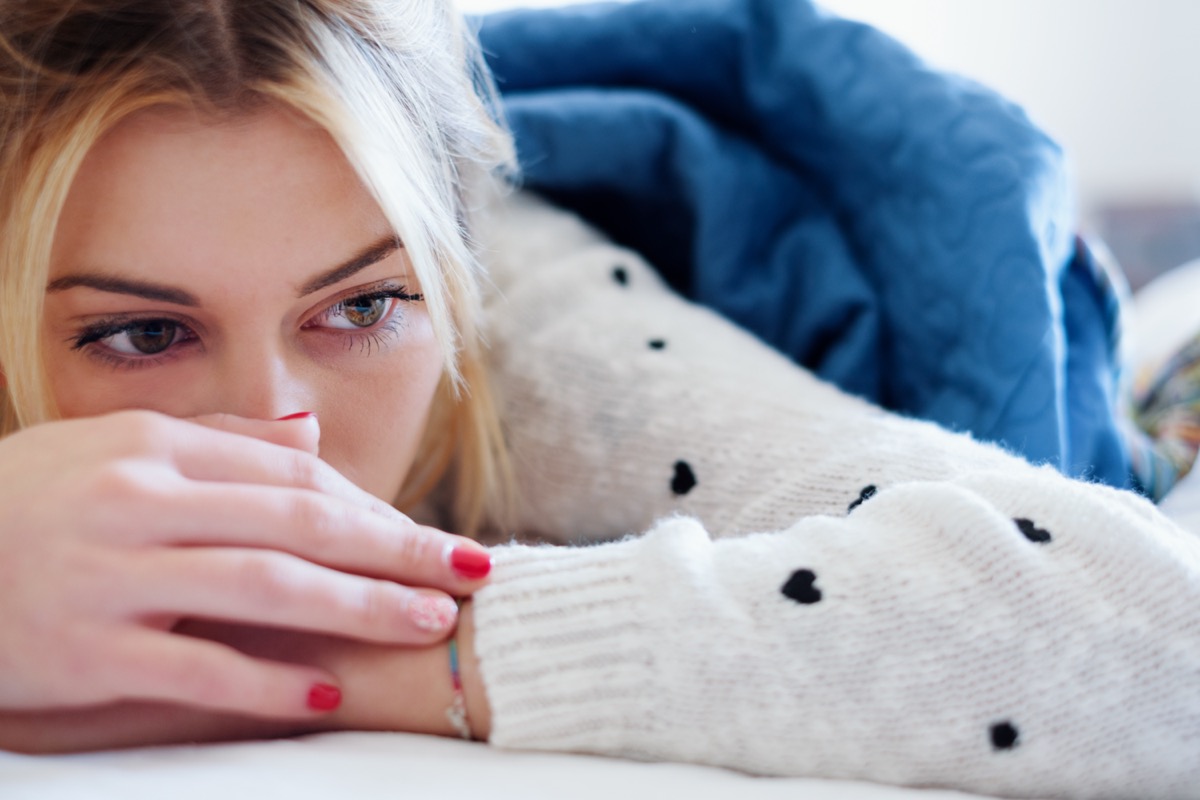
Your circadian rhythm, the term for the wildly complex biological process inside your body and brain that regulates your sleep-wake cycle, is a powerful force. Throughout the 24-hour day, your hormones, your body temperature, your metabolism, and—yes—your sleep, all follow a strict and coordinated cycle that ebbs and flows. According to some experts, there's even a circadian rhythm to athletic performance, as the window for peak athletic ability and focus occurs at a certain time of day. (Fun fact, it's also when most Olympic records are broken.)
Though medical professionals will tell you that you can indeed "hack" your internal body clock in a few small but meaningful ways—like moving your caffeine consumption back a few hours in the morning, exercising in the late afternoon or early evening for an enhanced fat burn and better heart health, or napping at just the right time of day—scientists are beginning to reveal just how powerful your body clock is to your mental health.
What's more, according to a new study, if you're trying to defy your natural rhythm with your sleep schedule, you may suffer the consequences. Read on for more about it, and for more ways to sleep better starting now, see here for The One Secret Sleep Trick That Can Change Your Life.
Larks Versus Night Owls
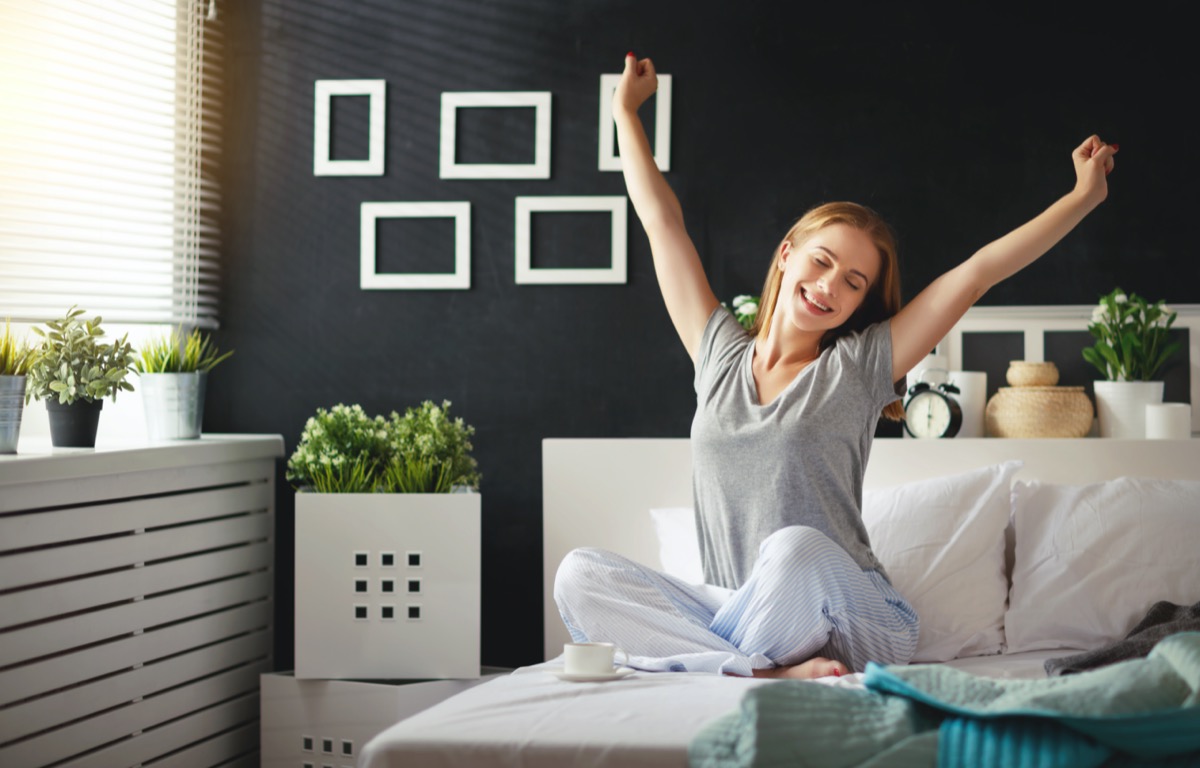
The new study, led by researchers at the UK's University of Exeter and published in the journal Molecular Psychiatry, examined data of more than 450,000 adults that was provided by the massive UK Biobank database. The data including genetic information, and whether or not the volunteers were a morning person (a "lark") or an evening person (an "owl"). The research team also "developed a new measure of 'social jetlag' that measures the variation in sleep pattern between work and free days," which was pulled from more than 80,000 of the participants that had provided the Biobank with sleep data via activity trackers.
Due to the reality of modern life where people are forced to work 9-5 jobs, the researchers found that those who happen to be genetic predisposed to early rising—or, put more simply, those who are larks—are better protected against depression and generally have a better sense of wellbeing. But that's not all the researchers concluded.
Change Comes With Consequences, They Say
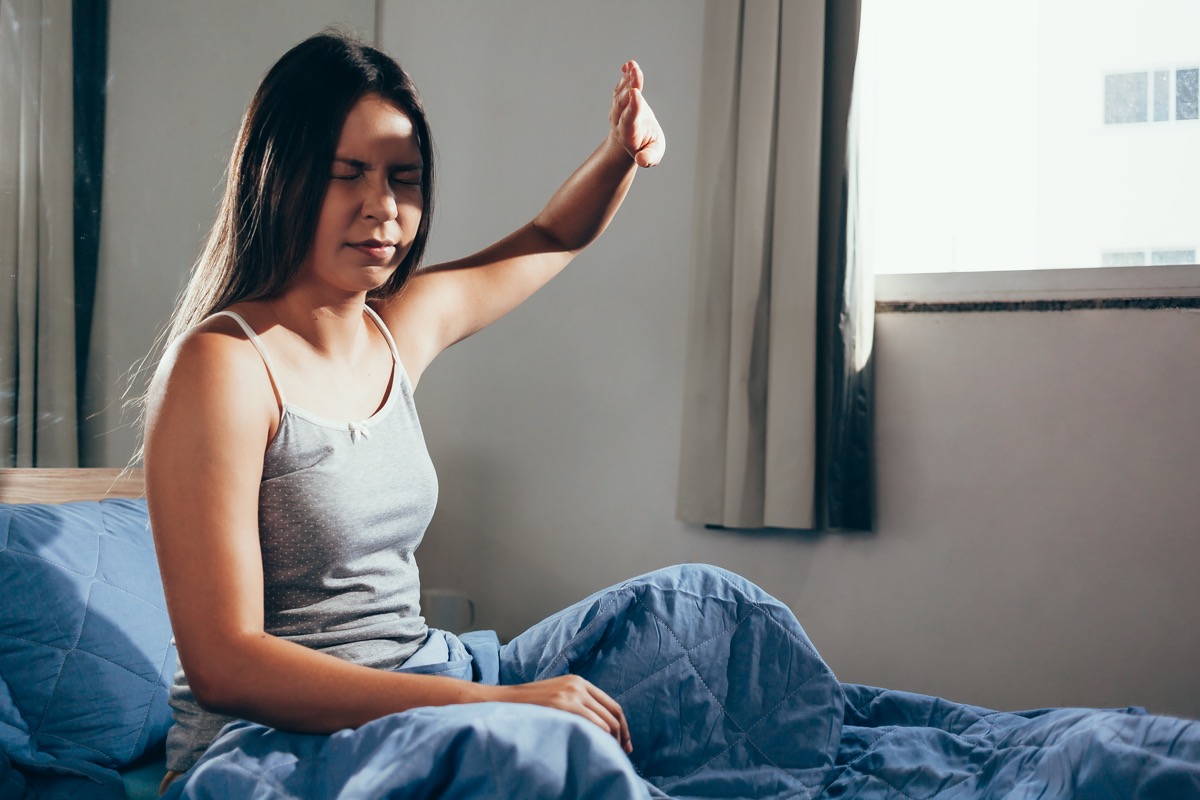
Regardless of whether you're a lark or an owl, the study concluded that those who were forced to go against their natural body clock suffered the consequences.
"We found that people who were misaligned from their natural body clock were more likely to report depression, anxiety and have lower wellbeing," says the study's lead author Jessica O'Loughlin, of the University of Exeter.
Yes, that's bad news for owls, as the researchers say that this "could be explained by the fact that the demands of society mean night owls are more likely to defy their natural body clocks, by having to wake up early for work."
But it's bad news for larks, as well, if they're forced to work later. In the remote-working world of COVID-19, where the standard 9-5 workday becomes less strict, this could be a problem. "The COVID-19 pandemic has introduced a new flexibility in working patterns for many people," says Jessica Tyrell, of the University of Exeter, and an author on the study. "Our research indicates that aligning working schedules to an individual's natural body clock may improve mental health and wellbeing in night owls." And for more ways to sleep better—regardless of your internal clock—consider trying This Easy Trick for "Falling Asleep in 5 Minutes" That's Going Viral.
It's the Latest Study Linking Circadian Rhythm to Mental Health

Another recently published study, which was conducted by scientists from the University of Colorado Boulder and the Broad Institute of MIT and Harvard and published in the journal JAMA Psychiatry, found that being a night owl—and staying up late and subsequently sleeping in for a longer duration than usual—may increase risk of depression by upwards of 40%.
However, the research team found that by adjusting your "sleep midpoint" (note: that's the halfway point between falling asleep and waking; so, if your bedtime is 11pm and your alarm is set for 6am, your sleep midpoint would be 3am), corresponded with a 23% drop in depression risk. "We found that even one-hour earlier sleep timing is associated with significantly lower risk of depression," Céline Vetter, Dr. phil., M.Sc., a professor of physiology at the University of Colorado, noted.
But Is That Defying Your Internal Clock?

Yes, it is, and these two new studies appear to be at odds. Do you acquiesce to your natural sleep schedule, or do you try and change it? According to Colorado's Vetter, you can indeed shift your body forward to become more of a lark to lower your depression risk. "Keep your days bright and your nights dark," Professor Vetter recommends. "Have your morning coffee on the porch. Walk or ride your bike to work if you can, and dim those electronics in the evening." Just be committed to it, because if your body doesn't get used to it, you may put yourself at greater depression risk. And for more sleep news, see here for the One Secret Side Effect of Having Weird Dreams, Says Study.
